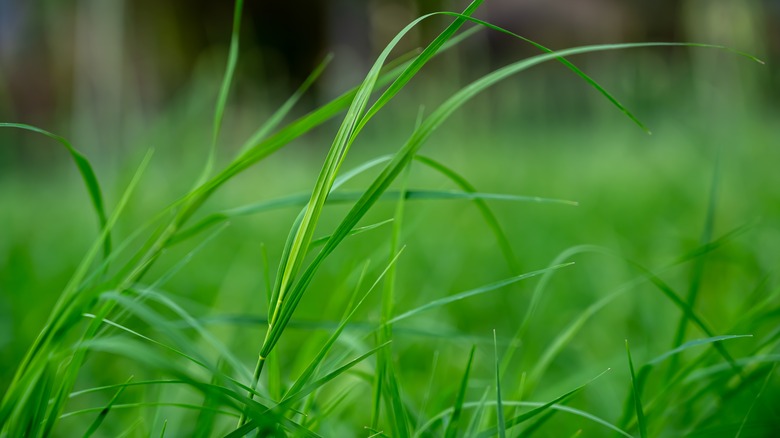It is a lot of work to maintain a lush and vibrant lawn. The seemingly simple foliage requires watering, weeding, fertilizing, pest control, and, worst of all — mowing. Whether you have a fancy ride-on lawn mower or a trusty handheld cutter, trimming the grass can be bothersome, especially when you have a large surface to cover. If you want to ensure you get the most out of each mow and minimize the landscaping chore as much as possible, stay away from Cynodon dactylon, also known as bermudagrass.
Bermudagrass is a popular choice for southern lawns because it is heat-tolerant, drought-resistant, and fast-growing. It grows the quickest out of all the common warm-season grasses. That is partly why it’s the preferred turf for baseball fields and golf courses, but if you hate mowing, you won’t want it for your lawn. You might end up powering on the trimmer more than once a week.
Summers are designated for mowing

Between June and August, when bermudagrass is at its peak, you’ll need to mow the lawn one time per week at minimum. It is recommended to cut the blades 1 to 1 ½ inches in height, but it can quickly reach up to 5 inches when left to grow. That means you’ll be out in the summer sun doing a chore you probably hate every single weekend. Plus, the fast-growing greenery tends to invade garden beds and get in between pavers, so you might be doing more weeding, too. You can outsource the landscaping, but depending on your lawn’s square footage, that could be an extra $50 to $200 each week.
Although you’ll get a mowing break when the bermudagrass goes dominant from December to February, you might be better off opting for a low-maintenance grass that won’t make you miserable every seven days. Zoysia, fine fescue, and buffalograss are common lawn turfs that only require mowing twice a year — less than once per season!